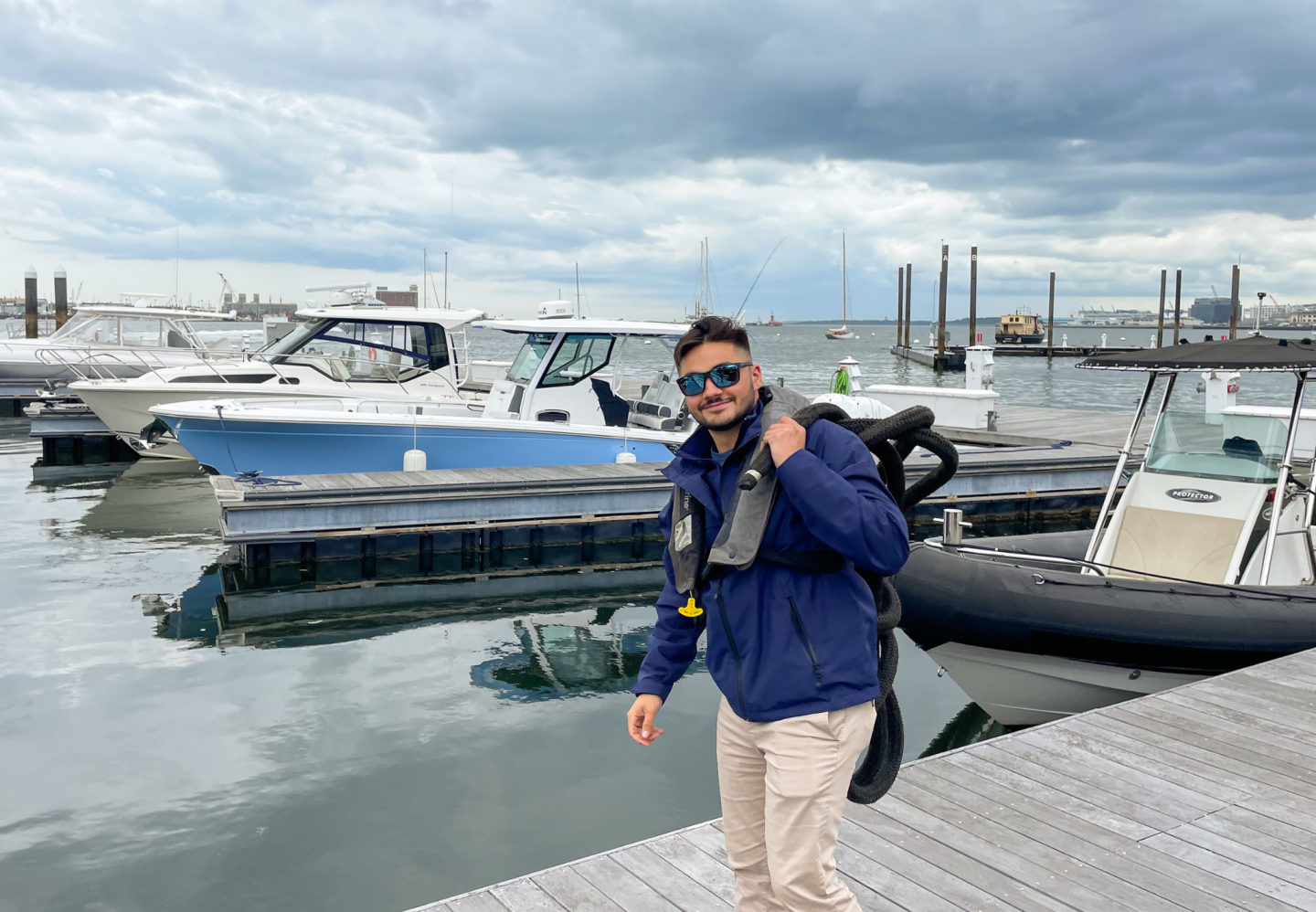Safe Boating
It is always a good time to think about safe boating habits, but May 18th marks the start of National Safe Boating Week. Take some time to reflect on your own practices, and continue reading for some tips on how to stay safe out on the water.
Before even you even set out on the water, consider taking a boating education course or brushing up on the Massachusetts Boat Safety Handbook. It is important to understand rules and regulations to keep you and other boaters safe. Just like driving a car, there are rules of the road every boater should know!
Also before heading out to sea, be sure to check the weather forecast and plan accordingly. While on the water, stay observant of your surroundings. Follow channel markers, adhere to warning signs, and keep a safe speed at all times.
Ensure all of your equipment is operating properly. The U.S. Coast Guard Auxiliary and the United States Power Squadrons are able to conduct Vessel Safety Checks, free of charge! To find out about how you can have one of these checks done, click the button below.
You are required by federal law to have certain equipment on board. Be prepared with life jackets, fire extinguishers, visual distress signals, and more before heading out to sea. Massachusetts requires additional items, such as an anchor, that may not be required on a federal level. Check your local boating handbook to learn more about what is required to ensure you are fully prepared.

One of the most important (and easiest!) things you can do to stay safe while boating is by wearing a life jacket (also known as a personal floatation device or PFD). Make sure you have at least one PFD on board for each passenger present. Any child under the age of 12, anyone using a personal watercraft, anyone water-skiing or otherwise being towed, and anyone in a canoe or kayak between September 15 and May 15 is required to wear their PFD at all times.
Even if it is not required, it is never a bad idea to wear your life jacket. All life jackets should be approved by the Coast Guard, the right size, in good condition and free of any rips, and kept in a place where they can be easily accessed in the event of a sudden emergency.
For longer trips, be sure to communicate important information with another person. This is known as a “float plan,” and includes information of your vessel, your destination and path, and the passengers on board. Even for short trips, letting someone know where you are and keeping communication devices on board can be beneficial in the event of an emergency.
For even more safe boating tips, visit the following online resources:
Massachusetts Marine Trades Association Safety Tips
Massachusetts Boating Safety Guide
Discover Boating's Float Plan Guide
Ready to head out on the water? Boston Yacht Haven is eager and ready to welcome you.